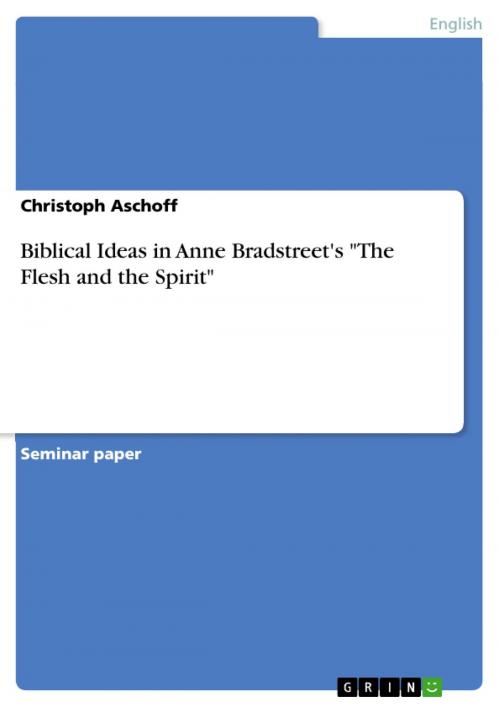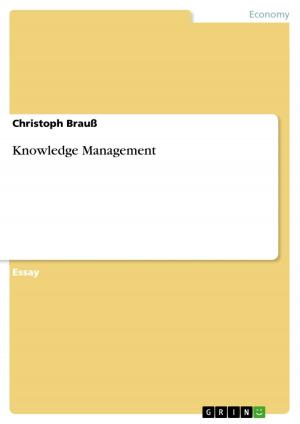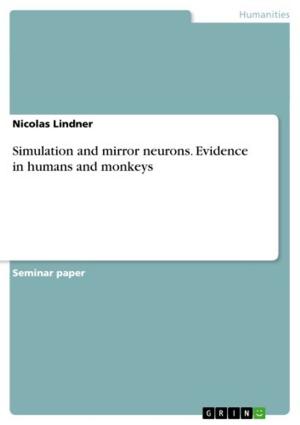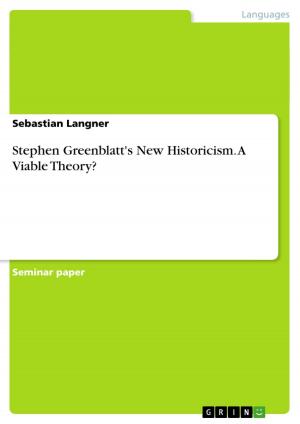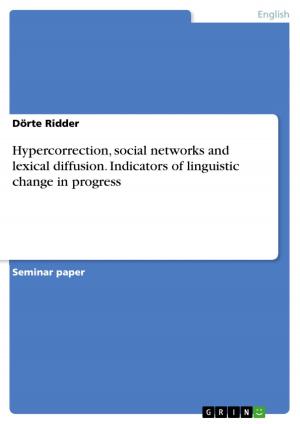Biblical Ideas in Anne Bradstreet's 'The Flesh and the Spirit'
Fiction & Literature, Literary Theory & Criticism, British| Author: | Christoph Aschoff | ISBN: | 9783640816514 |
| Publisher: | GRIN Publishing | Publication: | February 1, 2011 |
| Imprint: | GRIN Publishing | Language: | English |
| Author: | Christoph Aschoff |
| ISBN: | 9783640816514 |
| Publisher: | GRIN Publishing |
| Publication: | February 1, 2011 |
| Imprint: | GRIN Publishing |
| Language: | English |
Seminar paper from the year 2007 in the subject English Language and Literature Studies - Literature, grade: 1,3, Saarland University (Anglistik, Amerikanistik und anglophone Kulturen), course: Proseminar: An Introduction to American Poetry, language: English, abstract: 'I believe in the flesh and the appetites,' proclaimed the well-known American poet Walt Whitman in his famous 'Song of Myself' in 1855. About two centuries earlier, the Puritan poet Anne Bradstreet also dealt with the topic of her belief and the 'flesh' in her poem 'The Flesh and the Spirit' (1678), but from quite a different perspective and with very different associations. According to Joseph McElrath and Allan P. Robb it is known from autobiographical material that Bradstreet started to read the Bible at the very early age of six (xvi). He also states that '. . . her thorough familiarity with the Bible artfully manifests itself in virtually everything she wrote' (xix). Therefore I argue that as a work of Puritan poetry Anne Bradstreet`s 'The Flesh and the Spirit' is mainly inspired by biblical ideas. In my paper, I intend to identify the basic ideas derived from the Bible in the poem and the allusions to books of the New but also the Old Testament. For this purpose, I will examine which central concepts in Bradstreet's poem stem from the Scripture and explain their meaning in the context of the Bible. Thus, the meaning of the poem itself should become clearer. For the analysis, I will use the knowledge I acquired by reading the Bible for several years and studying Protestant theology. In addition, I will consult a Bible concordance and linguistic critical literature.
Seminar paper from the year 2007 in the subject English Language and Literature Studies - Literature, grade: 1,3, Saarland University (Anglistik, Amerikanistik und anglophone Kulturen), course: Proseminar: An Introduction to American Poetry, language: English, abstract: 'I believe in the flesh and the appetites,' proclaimed the well-known American poet Walt Whitman in his famous 'Song of Myself' in 1855. About two centuries earlier, the Puritan poet Anne Bradstreet also dealt with the topic of her belief and the 'flesh' in her poem 'The Flesh and the Spirit' (1678), but from quite a different perspective and with very different associations. According to Joseph McElrath and Allan P. Robb it is known from autobiographical material that Bradstreet started to read the Bible at the very early age of six (xvi). He also states that '. . . her thorough familiarity with the Bible artfully manifests itself in virtually everything she wrote' (xix). Therefore I argue that as a work of Puritan poetry Anne Bradstreet`s 'The Flesh and the Spirit' is mainly inspired by biblical ideas. In my paper, I intend to identify the basic ideas derived from the Bible in the poem and the allusions to books of the New but also the Old Testament. For this purpose, I will examine which central concepts in Bradstreet's poem stem from the Scripture and explain their meaning in the context of the Bible. Thus, the meaning of the poem itself should become clearer. For the analysis, I will use the knowledge I acquired by reading the Bible for several years and studying Protestant theology. In addition, I will consult a Bible concordance and linguistic critical literature.
